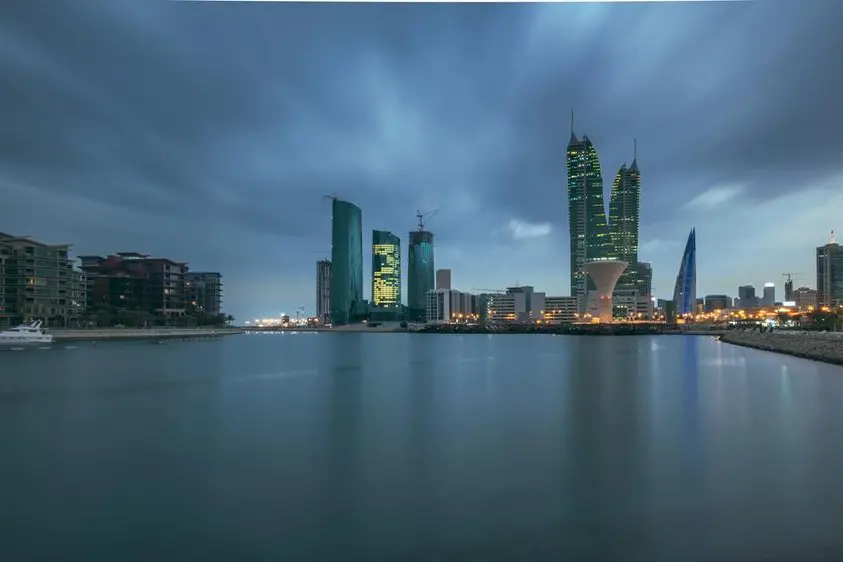PHOTO
A foundation for a common vision roadmap for the region focusing on food and water security, clean energy, tourism, healthcare, education and co-existence as well as regional security was drawn up yesterday.
This followed a historic first steering committee meeting of the six partners of the Negev Forum: Bahrain, the US, Israel, the UAE, Egypt and Morocco.The one-day meeting was held at the Sofitel Bahrain Zallaq Thalassa Sea and Spa.“We have discussed the foundations of a framework that will serve the region and the Middle East, promoting sustainable development across a wide range of vital fields,” said Foreign Ministry Under-Secretary for Political Affairs Dr Shaikh Abdulla bin Ahmed Al Khalifa.“These fields are represented by working groups focusing on food and water security, clean energy, tourism, healthcare, education and co-existence as well as regional security,” he explained.
“These all-encompassing fields will contribute to the betterment of the lives of the people of the Middle East.“This meeting is another in a long list of events that embody the vision of His Majesty King Hamad and Bahrain’s commitment to peace, co-existence, prosperity and stability.”He added that all forum participants shared a vision for the future of the region and future generations.“Our foreign ministers came together to build a regional framework with unified core objectives at the historical Negev Summit on March 28,” said Dr Shaikh Abdulla.“They include: deepening and strengthening relations in fields of common interest, expanding the co-operation and interdependence amongst member states, promoting scientific and technological innovation and establishing joint ventures that encourage co-operation among other important objectives.
“The forum is enhancing regional prosperity and security by promoting greater political, security, economic and people-to-people co-operation among the member states.”Dr Shaikh Abdulla pointed out that the forum sends a strong message of peace based on the principles of dialogue, coexistence, and mutual respect.“We are embracing the opportunity to build a well-structured regional architecture that enables co-operation, empowers the people of member states, enhances the security of the region.“It also promotes understanding and co-existence, improves the resilience of regional food and water resources, generates new, sustainable economic opportunities and proactively engages partners in the region.
”He added the meeting was a great example of proactive engagement and much was discussed.“This includes deciding on the annual rotating presidency and annual ministerial meetings. “We have also discussed the framework for the upcoming years and the upcoming ministerial meeting that will follow up on the historic first meeting in March in Israel.“We are determined to build on that resounding success for the sake of all people that call the Middle East home.“Bahrain, under the leadership of His Majesty King Hamad, is always committed to contributing to the building of peace and prosperity for all.
”He said peace was the pillar to construct bridges.“There are multiple platforms to achieve peace and we have nothing against any state in the region and we are open for more partners to achieve designated goals.”Israeli Foreign Ministry director-general Ambassador Alon Ushpiz, whose country will now chair the group, said working methods will be determined by assigned groups in each field.“We will meet regularly throughout the year as we deepen our co-operation,” he said.“Public benefit is what we seek to achieve through specific initiatives.
”US Department of State Principal Deputy Assistant Secretary of State for Near Eastern Affairs Yael Lempert said integrated co-operative effort would help move forward the initiatives.“It would flush on the bones of the Negev Summit and we are looking within working groups to benefit the Palestinian people,” she said.“So it is a very holistic goal of building an architecture that has meaningful results for the region.“Very soon with assignments handed between member countries we will get them started on rapid work schedule with a range of projects in the six core areas.”She said enhancements to the Free Trade Agreement (FTA) with Bahrain were not discussed.
UAE Foreign Affairs and International Co-operation policy planning director Abdulrahman Al Neyadi, Egyptian Foreign Minister’s Office Affairs Deputy Assistant Foreign Minister Mohamed Salim and Moroccan Foreign Affairs, African Co-operation and Moroccan Expatriates bilateral relations and regional affairs director-general Ambassador Fouad Yazough were present at the Press conference following the forum meeting.
© Copyright 2020 www.gdnonline.com
Copyright 2022 Al Hilal Publishing and Marketing Group Provided by SyndiGate Media Inc. (Syndigate.info).





















